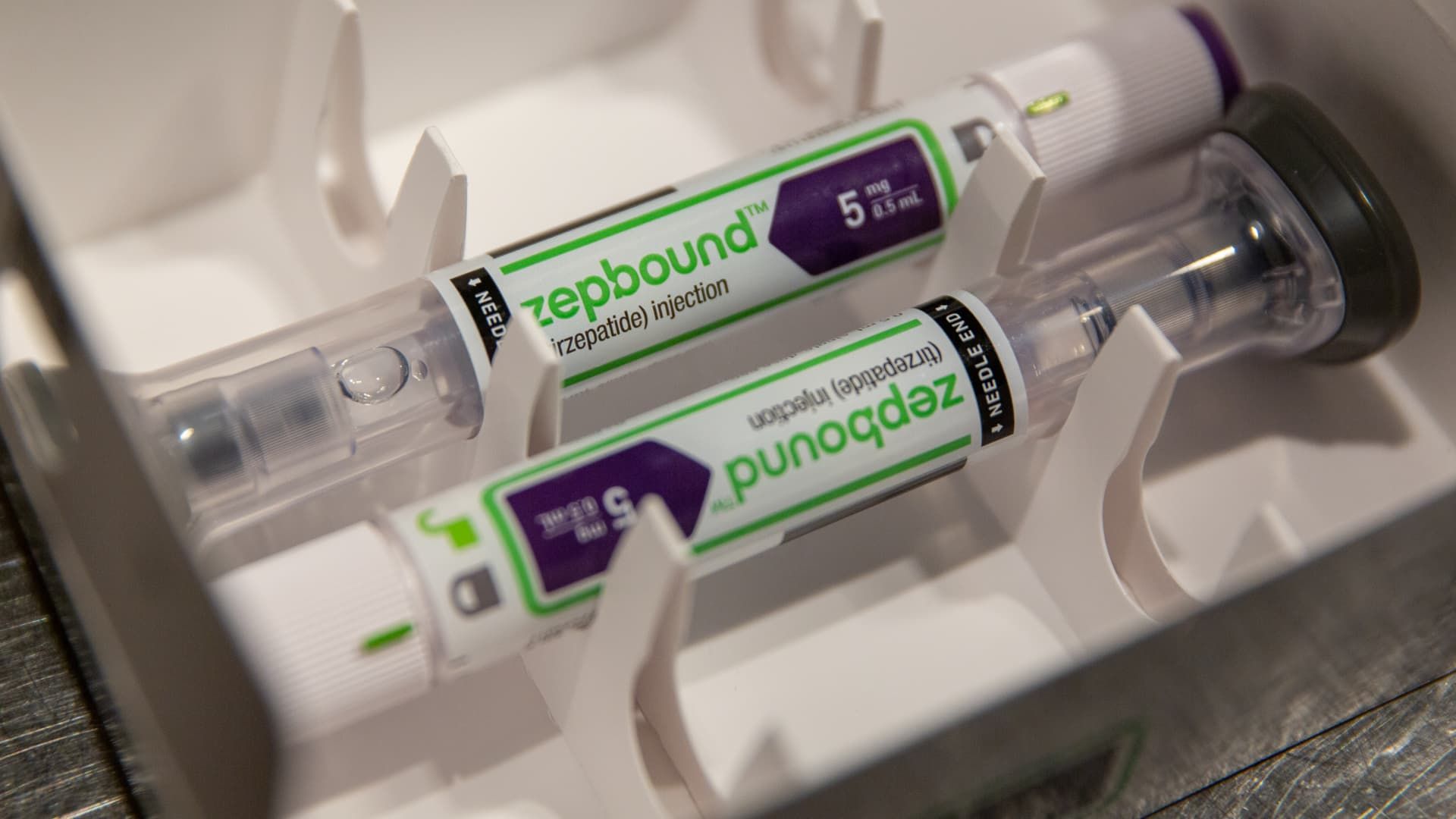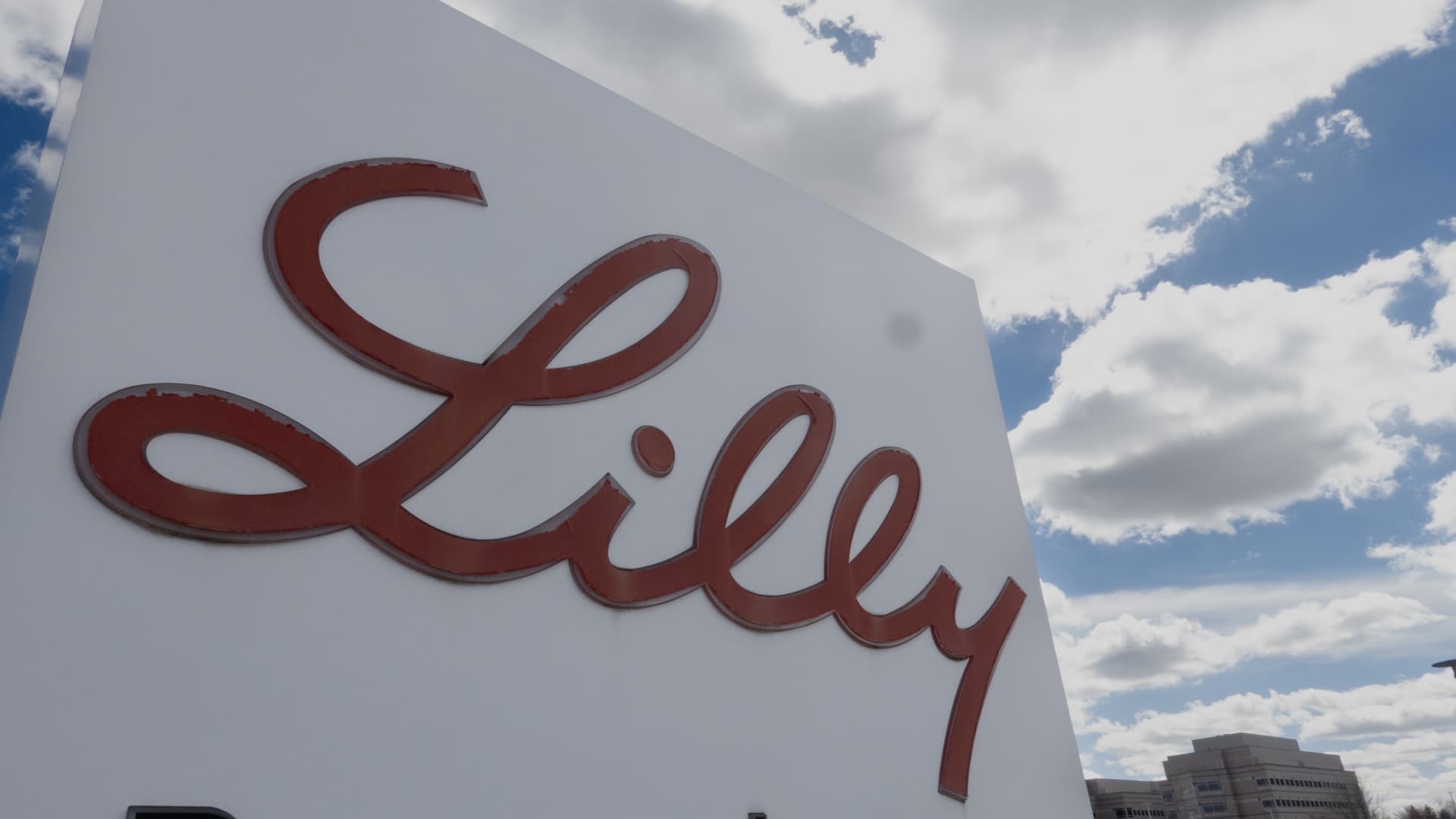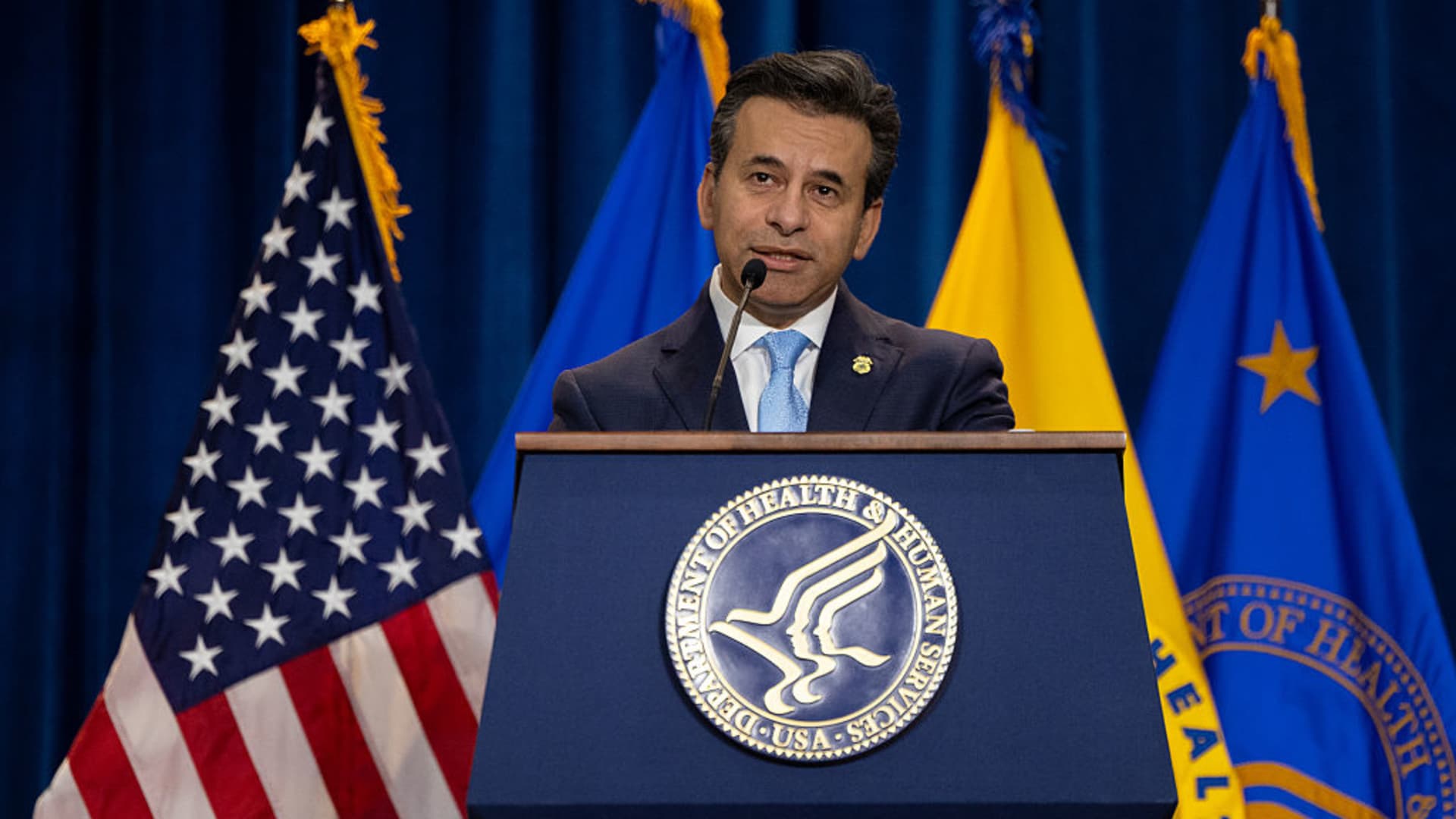An Eli Lilly & Co. Zepbound injection pen is prepared in the Brooklyn borough of New York, U.S., on Thursday, March 28, 2024.
Shelby Knowles | Bloomberg | Getty Images
Eli LillyThe weight-loss drug Zepbound showed benefits in patients with a common type of heart failure and obesity, according to late-stage trial data the company released Thursday.
The findings add to growing evidence that Zepbound and other popular GLP-1 drugs have health benefits beyond promoting weight loss and regulating blood sugar, which could potentially lead to broader insurance coverage for those treatments.
Eli Lilly said it plans to submit results from the phase three trial to regulators in the U.S. and other agencies beginning later this year.
Eli Lilly shares rose more than 3% in morning trading Thursday.
Patients taking Zepbound were 38% less likely to be hospitalized or die due to heart complications, and less likely to need to increase The study found that Zepbound significantly improved heart failure symptoms and physical limitations, Eli Lilly said in a statement.
For a median of two years, the trial followed more than 700 patients with heart failure with preserved ejection fraction (HFpEF) and obesity. Some patients also had diabetes.
Heart failure with preserved ejection fraction (HFpEF) occurs when the heart cannot pump enough blood to meet the body's needs. Eli Lilly said the condition is linked to a “heavy burden” of symptoms and physical limitations that affect a patient's daily life, including fatigue, shortness of breath and a reduced ability to exercise, among other problems.
An estimated 6.7 million adults age 20 and older in the United States have heart failure, according to the latest estimates from the Centers for Disease Control and Prevention.
Eli Lilly estimates that HFpEF accounts for nearly half of all heart failure cases, and in the U.S., nearly 60% of affected patients are also obese.
Safety data for Zepbound were consistent with those from previous trials studying the drug. The most common side effects were gastrointestinal, such as nausea and diarrhea, and ranged in severity from mild to moderate.
Eli Lilly will present the data at an upcoming medical meeting and submit it to a peer-reviewed journal.
The pharmaceutical giant's main rival in the GLP-1 market, Novo Nordisk, is already one step ahead.
Earlier this year, Novo Nordisk submitted an application for its weight-loss drug Wegovy to treat patients with heart failure with preserved ejection fraction. In March, the Food and Drug Administration also gave Wegovy the green light for reducing the risk of serious heart complications.
Meanwhile, both Novo Nordisk and Eli Lilly have been studying their respective drugs in patients with chronic kidney disease and fatty liver disease, among other conditions. GLP-1s work by mimicking hormones produced in the gut to suppress a person's appetite and regulate their blood sugar level.
But Zepbound targets both GLP-1 and GIP hormone receptors, while Wegovy targets only GLP-1.
Correction: In March, the Food and Drug Administration gave Wegovy the green light for dramatically reducing the risk of serious heart complications. An earlier version incorrectly stated the month.












